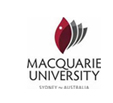As endovascular techniques for treating aneurysms and stroke have evolved, there has been increasing interest from radiologists, neurologists and neurosurgeons in learning these techniques and treating patients with them. However, even in very experienced hands, these procedures carry a small but significant risk of stroke, bleeding, disability, paralysis, loss of speech or vision, or death.
Because of these risks, the three Colleges responsible for Radiology, Neurology and Neurosurgery agreed to form a conjoint committee to develop minimum training standards for Interventional Neuroradiology (INR) as well as minimum requirements for caseloads after training to maintain satisfactory skills, and audit and infrastructure requirements at the hospitals where INR doctors practice.
This committee, the Conjoint Committee for recognition of training in Interventional Neuroadiology, or CCINR, has been active since 2014. The training and skills maintenance standards developed by the committee (viewable here) were approved by all Colleges in 2015. The CCINR commenced certifying INR practitioners in early 2016. The CCINR is recognised locally and internationally as the peak body for determining training and skills maintenance standards for INR in Australia and New Zealand.
To see if your doctor is CCINR certified, click here.
As a patient undergoing endovascular treatment, you are entitled to ask your doctor if they are certified by the CCINR, and, if not, you should seriously consider seeking an opinion from a doctor who is on the register.














